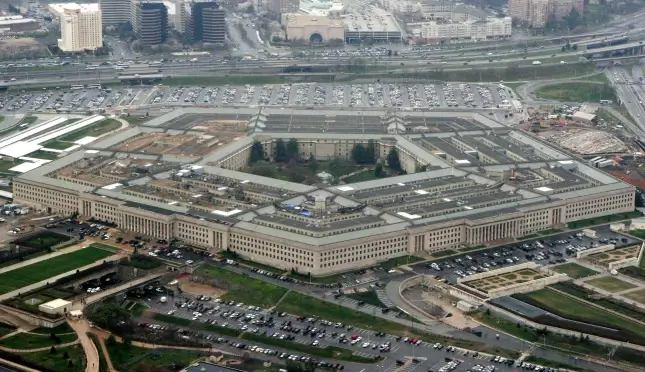A top Pentagon official has resigned, issuing a warning about the ongoing technological races between the United States and its adversaries.
Preston Dunlap, who spent more than three years as the founding chief architect officer for the Space Force, appears to have resigned this week, posting a lengthy note on LinkedIn detailing what he believes his former colleagues need to focus on moving forward.
Dunlap’s eight-page letter includes four steps “to fight the beast of bureaucracy,” and they are: “1) shock the system, 2) Flip the Acquisition Script, 3) Just Delivery Already, and 4) Slay the Valley of Death and Scale.”
“There are any number of forces at work in a large organization: friction, sand in the gears, the frozen middle, bureaucracy, tradition, culture, stovepipes, analysis paralysis, risk aversion, programming and budgeting, and so on. The System is generally set up to pull everyone and every idea down to the status quo,” he said. “Driving changes requires defying gravity.”
He concluded the letter with a warning to his former colleagues not to “lull ourselves into complacency, when we should be running on all cylinders,” “distract ourselves with process when we should be focused on delivering product,” and “compete with each other, when we should be competing with China,” among other ideas.
"These are accessible to anyone with resources and academics and capabilities, and so our adversaries or potential adversaries are able to have access to that technology, not only inside their own economies, but because of the benefit of our free and open society, which is a great thing," Dunlap said in a subsequent interview on Fox News.
His comments are similar to those of the former inaugural chief software officer at the Pentagon, Nicolas Chaillan, 37, who worked for three years on a Department of Defense-wide effort to enhance cybersecurity and became the first chief software officer of the Air Force before resigning, which is when he shared his belief that the United States has already lost the technological battle against China.
“We have no competing fighting chance against China in 15 to 20 years. Right now, it’s already a done deal; it is already over in my opinion,” he told the Financial Times in an article published on Sunday, adding there is “good reason to be angry.”
Chaillan argued that emerging technological advances represent a much more important aspect of defense than commonly thought of military hardware such as fighter jets.










